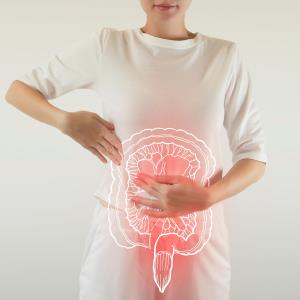About half of individuals with chronic pouchitis respond to ustekinumab, as shown in a prospective study.
The study included 22 patients (median age 42.2 years, 59 percent male) with ulcerative colitis who underwent proctocolectomy with pouch surgery and subsequently received a diagnosis of chronic pouchitis. These patients received ustekinumab intravenously at ∼6mg/kg at baseline then subcutaneously at 90 mg every 8 weeks thereafter. Researchers evaluated the modified pouchitis disease activity index (mPDAI) at baseline, week 16, and 48.
The proportion of patients achieving steroid-free remission (mPDAI <5 and reduction by ≥2 points) at week 16 was the primary study endpoint. The proportion of patients achieving remission at week 48, the proportion of patients achieving response (reduction of mPDAI by ≥2 points) at weeks 16 and 48, and change in mPDAI were also assessed as secondary endpoints.
Remission occurred in 27.3 percent of patients at week 16 and in 36.4 percent at week 48. More than half of patients (54.5 percent) showed response at both time points.
The median baseline mPDAI of 8 decreased to 7 at week 16 (p=0.007) and then to 4 at week 48 (p<0.001). The same was true for the clinical and endoscopic mPDAI subscores. Clinical mPDAI subscores dropped from 3.5 at baseline to 2 at week 16 (p=0.009) and then to 1 at week 48 (p=0.001), while the endoscopic mPDAI subscore decreased from 5.5 to 4 (p=0.032) and then to 3 (p=0.001), respectively.
The findings suggest that the inclusion of ustekinumab in the treatment algorithm of chronic pouchitis should be considered.

